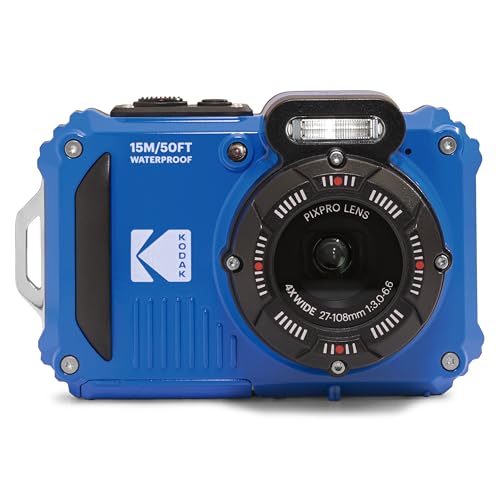


Monitoring security cameras remotely has become an essential aspect of modern surveillance systems. With the advancement of technology, it is now possible to keep an eye on your property or business from anywhere in the world using just a smartphone or computer.
Remote monitoring allows you to access live video feeds, review recorded footage, and receive alerts in real-time, providing you with peace of mind and enhancing the security of your premises. Whether you are a homeowner looking to keep an eye on your property or a business owner monitoring your workplace, remote access to security cameras is a valuable tool.
In this article, we will explore how to set up and monitor security cameras remotely, the benefits of remote surveillance, and the best practices for ensuring the security and privacy of your camera feeds.
Understanding Security Cameras
Security cameras are electronic devices that capture video footage of a specific area to monitor and record activities. They are commonly used for surveillance and security purposes in homes, businesses, and public spaces.
There are different types of security cameras, including:
- Wireless cameras: These cameras transmit video footage wirelessly, making them easy to install and flexible in terms of placement.
- Wired cameras: These cameras require a physical connection to a recording device, such as a DVR or NVR, via cables.
- Indoor cameras: Designed for indoor use, these cameras are often smaller and more discreet.
- Outdoor cameras: Built to withstand outdoor conditions, these cameras are weatherproof and provide surveillance for external areas.
Security cameras can have various features, such as:
- High-definition video quality: Cameras with HD resolution provide clear and detailed footage.
- Night vision: Cameras equipped with infrared LEDs can capture video in low-light or no-light conditions.
- Motion detection: Cameras with motion sensors can trigger recording when movement is detected, helping to conserve storage space.
- Remote access: Many modern security cameras allow users to monitor footage remotely via a smartphone, tablet, or computer.
Understanding the different types and features of security cameras can help you choose the right system for your surveillance needs.
Remote access options
When it comes to monitoring security cameras remotely, having the right access options is crucial. Here are some common methods for accessing your security camera feed from anywhere:
1. Mobile app: Many security camera systems come with a mobile app that allows you to view live footage and access settings remotely. Make sure to download the app and set it up for easy access.
2. Web browser: Some security camera systems offer a web-based interface that allows you to log in from any computer or device with internet access. This can be a convenient option for accessing your cameras remotely.
3. Cloud storage: Consider using a security camera system that offers cloud storage for your footage. This way, you can access your recorded videos from anywhere with an internet connection, without the need for physical storage devices.
4. VPN (Virtual Private Network): For added security when accessing your security cameras remotely, you can set up a VPN connection. This will encrypt your connection and ensure that your camera feed is secure from prying eyes.
By utilizing these remote access options, you can keep an eye on your property and loved ones no matter where you are.
Mobile app setup
Setting up a mobile app to monitor your security camera remotely is a convenient way to stay connected to your surveillance system at all times. Follow these steps to get started:
- Download the app: Visit the App Store or Google Play Store on your smartphone or tablet and search for the app associated with your security camera brand.
- Install the app: Once you find the app, download and install it on your device.
- Create an account: Open the app and create a new account or log in if you already have one.
- Add your camera: Follow the app’s instructions to add your security camera to the app by scanning the QR code or entering the camera’s serial number.
- Configure settings: Adjust the settings in the app to customize your monitoring preferences, such as motion detection alerts and recording schedules.
- Start monitoring: Once the setup is complete, you can start monitoring your security camera remotely from your mobile device.
Internet connection requirements
Monitoring security cameras remotely requires a stable and high-speed internet connection. It is recommended to have a broadband connection with a minimum upload speed of at least 1 Mbps for each camera. A reliable internet connection ensures smooth video streaming and real-time monitoring without interruptions.
Additionally, consider using a wired connection instead of Wi-Fi for better reliability and security. Ethernet cables provide a more stable connection, reducing the risk of signal interference or network disruptions. Make sure to test your internet speed and connectivity before setting up remote monitoring to ensure optimal performance.
Troubleshooting Tips
If you are having trouble accessing your security camera remotely, try the following troubleshooting tips:
1. Check your internet connection to ensure it is stable and working properly.
2. Verify that the security camera is powered on and connected to the network.
3. Restart the security camera and the remote viewing software or app.
4. Make sure you are using the correct login credentials to access the camera remotely.
5. Check the camera settings to ensure remote access is enabled.
6. Update the firmware of the security camera to the latest version.
7. If you are still experiencing issues, contact the manufacturer’s technical support for further assistance.







